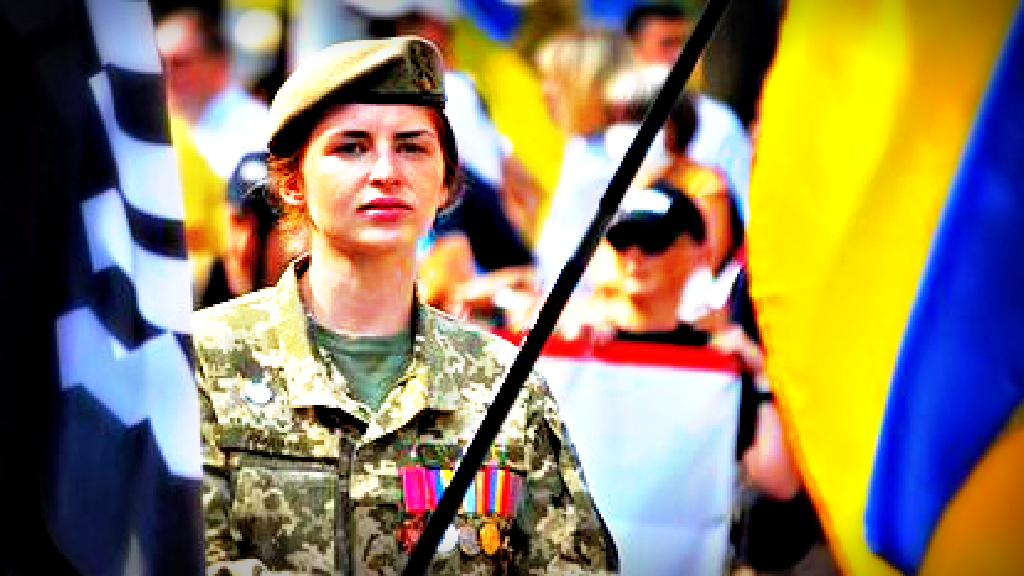Lieutenant Yulia Mykytenko epitomizes the fatigue and war-weary sentiment that pervades even the most dedicated soldiers in Ukraine. Recently featured in Lara Marlowe’s new biography, “How Good It Is I Have No Fear of Dying: Lieutenant Yulia Mykytenko’s Fight for Ukraine,” the 29-year-old commander of a 25-man drone reconnaissance platoon sheds light on the mental and emotional toll the protracted conflict has taken on her and her troops. Mykytenko acknowledges, “I know that I am tired. I’m really tired,” highlighting not only her own weariness but also the exhaustion shared by her team, many of whom come from assault units. Despite the desire to continue fighting for Ukraine, she expresses a readiness for negotiations, emphasizing the need for Western allies to support Ukraine’s interests in any peace discussions.
General Valery Zaluzhny, Ukraine’s ambassador to Britain and former commander-in-chief of the armed forces, is also in London, where he suggested that Kyiv might consider a peace deal recognizing some territorial losses to Russia. His nuanced stance indicates that while territorial integrity is vital, the fundamental priority should be the safety and security of Ukrainians. Zaluzhny’s metaphor about living beside a neighbor who encroaches on one’s garden resonates with the broader sentiment that unresolved issues could still lead to future conflict. His remarks reflect a calculated willingness to explore diplomatic solutions rather than merely focusing on regaining lost territory.
Reflecting on the prolonged war, Mykytenko expresses disappointment over missed opportunities to achieve a decisive victory. She recalls her initial optimism regarding timely Western support, hoping for advanced military equipment like F-16s and Patriots by the end of 2022. Mykytenko’s belief that a more robust early response from the West could have dramatically changed the course of events underscores the frustration felt by many Ukrainian soldiers. She suggests that if the 2023 offensive had targeted weaker Russian defenses rather than the heavily fortified lines in occupied Zaporizhzhya, the outcome might have been different. Her contemplations are punctuated by a stark realization: the war has exacted a heavy toll, with many soldiers dead, missing, or permanently injured.
The Lieutenant’s perspective is steeped in personal loss. Besides being a veteran of Ukraine’s long-standing conflict in Donbas, she lost her husband on the battlefield, and her father, who also fought, ultimately succumbed to suicide. This history not only underscores her resilience but also reveals the deep emotional scars that war inflicts on individuals and their families. It’s a reminder that the impacts of war extend beyond physical injuries and battlefield losses, embedding themselves within the psyches of those who serve and their loved ones.
As Russian forces continue their relentless push across the frontline, the discourse surrounding potential negotiations gains urgency. Mykytenko cautions that any agreement that merely cedes Ukrainian territory to Russia without accountability may create a dangerous precedent, effectively waiting for the conditions to spark another conflict. Her warning that such a situation could merely serve as a pause for Russia to regroup and rearm is a stark reminder of the cyclical nature of war, where temporary solutions do not address underlying issues.
The sentiments conveyed by both Mykytenko and Zaluzhny highlight the complex motivations behind the desire for peace amidst deep-rooted grievances. While the current realities of war demand conversations about negotiations, the underlying consequences of those negotiations remain a poignant concern. As the conflict continues, the thoughts of these Ukrainian leaders underscore an urgent call for a resolution that protects their nation’s integrity, secures the safety of its people, and acknowledges the sacrifices made in the name of defense and freedom.

